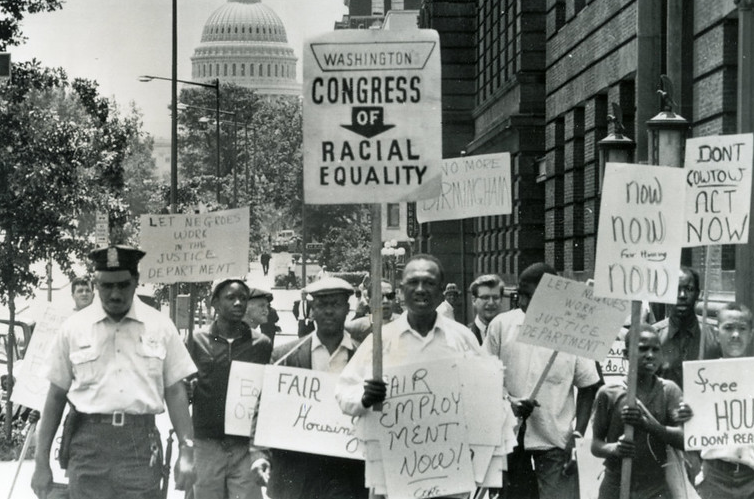A regular reader of Boston Review (which he called “a jewel”), John Rawls was among the most influential political philosophers of the twentieth century. On last year’s centenary, Rawls student and BR co-editor-in-chief Joshua Cohen compiled and introduced a special reading list of Rawlsian essays, including one from Rawls himself. Today’s reading list extends a Rawlsian concern with justice through the lens of debates about egalitarianism: the school of philosophical thought that takes equality as its guiding ideal.
Egalitarianism has always been a central component of BR’s editorial agenda, and our archive features several rich essays dealing with egalitarian themes. In a classic essay from 2000, philosopher Stuart White charts a debate over the personal and the political dimensions of equality, mapping the contours of a striking ethical turn in egalitarian thought—away from the laws and institutions that were Rawls’s focus, toward a focus on morality and the good life. Other archival essays, including work by Martin O’Neill and Thad Williamson, consider the merits of different strains of egalitarianism and the various meanings of equality, while a forum led by economists Herbert Gintis and Samuel Bowles argues that an egalitarian agenda is not only morally necessary but also politically feasible.
But the key inspiration for today’s reading list comes from political theorist Teresa M. Bejan’s recent review of Anne Phillips’s new book, Unconditional Equals. In her book, Phillips confronts a renewed wave of disaffection with the ideal of equality—even among progressives, many of whom have argued, in the face of stubborn inequalities of wealth and power, that equality talk is cheap. In the face of this skepticism, Phillips explores where egalitarian theory went wrong and what it still has to offer. She centers her critique, in particular, on dichotomous approaches to egalitarianism, arguing that the separation of “formal” from “substantive” equality impedes the realization of a more just world.
“The division suggests that formal equality must necessarily give way, in the long run, to more substantive varieties—in other words, that a truly egalitarian society is simply a matter of time,” Bejan writes. “But this presumption of progress is just another way of saying that the time for equal rights is now, but the time for a society of equals—in which all enjoy equality of socioeconomic security and standing—is ‘not yet.’” Instead, Phillips argues that the equality of human beings is not a philosophical truth to be “justified” but a political achievement to be realized in practice.
Amidst today’s revitalized debates over the meaning of equality, these essays show how egalitarianism remains an essential philosophical resource in the struggle for a more just world:
- Just Give Me My Equality by Teresa M. Bejan
Amidst growing suspicion that equality talk is cheap, a new book explains where egalitarianism went wrong—and what it still has to offer.
- Ethics and Equality by Stuart White
Egalitarianism must be understood as part of a more encompassing view of how best to live.
- Is Equality Passé? a forum with Herbert Gintis and Samuel Bowles
The welfare state is in trouble not because selfishness is rampant (it is not), but because many egalitarian programs no longer evoke deeply held notions of fairness.
- What We Owe Each Other by Martin O’Neill
T. M. Scanlon’s ideas about equality are philosophically significant. They also have the potential to inform how we ought to approach day-to-day politics.
- The Almost Inevitable Failure of Justice by Thad Williamson
The persistence of Black poverty has become a permanent feature of U.S. democracy. We need an expanded political imagination to dismantle it.
- Inequality Is Not Our Fate by Stuart White
“There is much we can do to create a more egalitarian economy and, in the process, a freer way of life. But the ambition to reshape and transcend capitalism needs to join with the struggle to renew representative democracy. Egalitarians need more discussion not just of policy but of politics and the democratic state.”
- MLK Now a forum with Brandon M. Terry
Canonization has prevented a reckoning with the substance of King’s intellectual, ethical, and political commitments—he has become an icon to quote, not a thinker and public philosopher to engage.
- Beyond the Welfare State by Martin O’Neill and Thad Williamson
A careful reading of Rawls leads us away from both mainstream political parties and American welfare-state capitalism, and towards building an entirely different society.
- Beyond Freedom and Equality by Nick Bromell
“Appeals to dignity capture something that the time-honored values of liberty and equality miss.”
- Rawls at 100 a reading list from Joshua Cohen
We celebrate the political philosopher’s centenary, as well as the 50th anniversary of the publication of “A Theory of Justice.”
- Bostock v. BLM by Aziz Z. Huq
“This new fissure is not solely a matter of differing conceptions of equality. Rather, it forces us to question how much of the social and economic world we hold constant when demanding equality.”





